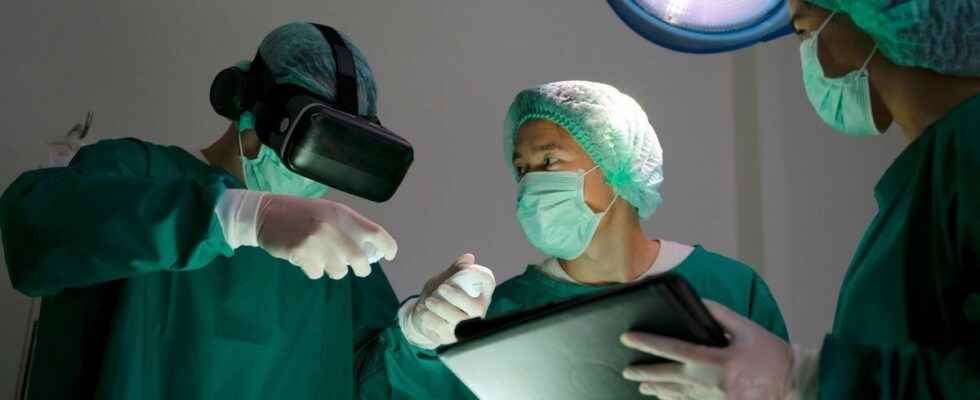Published on
Updated
Reading 2 mins.
The metaverse could open the field to all kinds of health applications, even if there are still many limits, according to Frédéric Thomas, French specialist in health issues at the consulting firm Roland Berger.
Frederic Thomas : The metaverse has several characteristics: first, it’s a universe that will persist even when I’m not connected. Then, it’s an open universe, a priori without barriers, you just need a computer and a virtual reality headset. It is also, among other characteristics, immersive. And, there is an avatar. However, most online apps, or virtual reality, only have a few of these features at the moment.
The metaverse also raises many questions about the inequalities of access between the different population categories: already today, we see in the polls that not everyone knows what it is, and that among those who know what it is, most are young men.
The metaverse therefore raises the question of exclusion. We have to bring it to the general public. For now, it’s a dream driving the actions of a number of players and investors, and one that may not happen exactly as portrayed today.
It generates strong investor interest precisely: who are the main players?
It is mainly the web players (Meta, Microsoft, editor’s note) who are in a way not far from reaching the limit of what they can do in the current infrastructure: they have to change scale because otherwise the growth will no longer be there. These players must find virgin spaces to colonize to generate strong growth. We are in the logic of the Wild West, where the actors push further the limits of the universe. There are already tens of billions of investments around the world.
Beyond its limits, such as unequal access, can it contribute anything to health?
You can imagine all kinds of things. For example, you might have a “digital twin”. This would allow the laboratories to be able to work not on you, but on your avatar, which would be a clone of yourself, in a parallel universe, via mathematical modeling. We could detect breast cancer on your avatar, for example if you (and the avatar) have such a genetic mutation favoring this type of tumor.
In health, interesting things could be done, in psychiatry, or in setting up programs for monitoring patients. There is also the subject of training and learning, both for caregivers and for patients. Can surgeons be trained more quickly using virtual reality? All this raises many questions.
